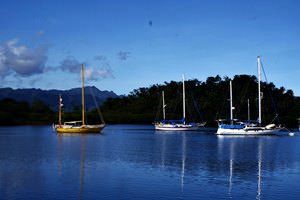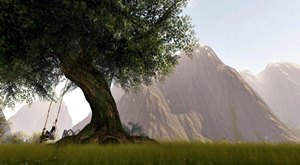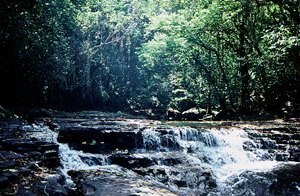 Vanua Levu is the second largest island in Fiji. Despite its size, it has only recently become a tourist destination. Therefore, there is not a particularly developed service, there are no major events, except for national holidays. But the island is a place where the traditional way of life of the population is best preserved. Fijians love and widely celebrate national holidays, but there are no festivals on Vanua Levu, so you can only watch the events associated with the annual national and religious holidays.
Vanua Levu is the second largest island in Fiji. Despite its size, it has only recently become a tourist destination. Therefore, there is not a particularly developed service, there are no major events, except for national holidays. But the island is a place where the traditional way of life of the population is best preserved. Fijians love and widely celebrate national holidays, but there are no festivals on Vanua Levu, so you can only watch the events associated with the annual national and religious holidays.
Vanua Levu became a tourist centre not so long ago, and its area is still not very developed. There are no global attractions and museums, but there are still a few places to visit. Be sure …  Open
Open
Vanua Levu is a great place for water sports. First of all, it is diving. There are many coral reefs around the island. Conditions for scuba diving are almost perfect here: warm water, very …  Open
Open
 There is reverent respect for the leader in the local villages. This is especially noticeable when performing the ritual of kava drinking. This ceremony is always held before the beginning of any celebration in the community. Sitting around tanoa (a special large wooden bowl), locals demonstrate unity with the ancestors. The first sip is made by the leader, then the cup is passed to the guest, and then the rest of the participants try the drink in a circle. Only then the actual celebration begins with a plentiful table and entertainment.
There is reverent respect for the leader in the local villages. This is especially noticeable when performing the ritual of kava drinking. This ceremony is always held before the beginning of any celebration in the community. Sitting around tanoa (a special large wooden bowl), locals demonstrate unity with the ancestors. The first sip is made by the leader, then the cup is passed to the guest, and then the rest of the participants try the drink in a circle. Only then the actual celebration begins with a plentiful table and entertainment.
1. It is better to go on Vanua Levu in the season from May to October. The weather is stable at this time of year, there are often hurricanes from November to April. 2.It is necessary …  Open
Open
 Traditional dances are performed on all of the local holidays. Movements and motives are transmitted through many generations and have their own specific meaning. Each event like a birth, a wedding, a war or a funeral corresponds to its ritual dance. There are female and male dances. Men usually more expressive, sometimes they carry weapons or other attributes. Women are more gentle here. For example, Seasea is a love dance, but there are quite militant performances such as a dance which expresses an insult to the enemy.
Traditional dances are performed on all of the local holidays. Movements and motives are transmitted through many generations and have their own specific meaning. Each event like a birth, a wedding, a war or a funeral corresponds to its ritual dance. There are female and male dances. Men usually more expressive, sometimes they carry weapons or other attributes. Women are more gentle here. For example, Seasea is a love dance, but there are quite militant performances such as a dance which expresses an insult to the enemy.
Beaches of Vanua Levu appeal to travelers preferring to enjoy pristine natural beauty, admire scenic spots and dive. One of the most scenic stretches of coastline is Savusavu Bay located in …  Open
Open
 There are very colourful religious Hindu holiday Rama’s birthday and Holi festival of colours. They are celebrated everywhere, musical performances, national dances, songs, and festive processions are held on the island. Of course, traditionally the participants of the festival sprinkle each other with powder of different colours. Holidays held by the island community of Indians are always bright and original. In October, you can see the holiday of Devali-the festival of lights. The event is dedicated to the goddess Lakshmi and accompanied by fireworks and all kinds of musical events.
There are very colourful religious Hindu holiday Rama’s birthday and Holi festival of colours. They are celebrated everywhere, musical performances, national dances, songs, and festive processions are held on the island. Of course, traditionally the participants of the festival sprinkle each other with powder of different colours. Holidays held by the island community of Indians are always bright and original. In October, you can see the holiday of Devali-the festival of lights. The event is dedicated to the goddess Lakshmi and accompanied by fireworks and all kinds of musical events. 

